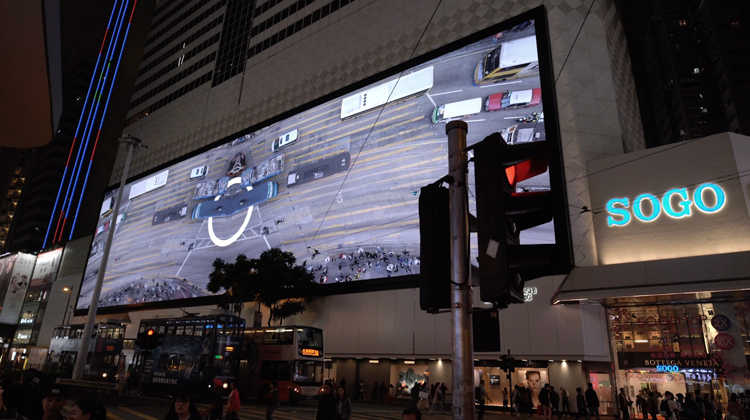How universities can prioritise creativity and career progression
At the City University of Hong Kong’s School of Creative Media, students are given a range of creative opportunities alongside practical support for future employment
Share
Sponsored content: created in partnership with the City University of Hong Kong.
Universities have a responsibility to not only foster creativity in their students but also to support them in putting that creativity towards the skills that employers require. This is something that Howard Cheng, an interdisciplinary artist and designer, has seen first-hand. Cheng graduated with a bachelor’s degree in creative media, via the Critical Intermedia Laboratory stream, at the City University of Hong Kong’s (CityU) School of Creative Media (SCM) in 2009.
“When I was searching for programmes to study in Hong Kong, I was immediately drawn to those on offer at the SCM,” Cheng says. “The curriculum was extremely diverse, so I saw it as an ideal opportunity to explore a series of creative and exciting features at this institution.”

These opportunities enable students to experiment with a variety of different media, including photography, writing, video, graphics and interactive work. “When I first enrolled on my programme at the SCM, my professor showed a three-hour video that gradually, almost imperceptibly, zoomed in on a painting,” Cheng explains. “For some, this video may have been boring, but I found it extremely eye-opening. I had some knowledge of video making, but wasn’t aware of experimental video or video art.”
Despite the sometimes-experimental nature of the courses offered by the SCM, the school keeps students focused by offering practical skills, like camera and software training, alongside work that helps shape their perspective.
“The school focuses on three core elements: eye, brain and hand. These represent ways of seeing, a critical mindset and craftsmanship,” Cheng says. “In this way, the SCM helps develop students into well-rounded individuals. The principles I learned at the SCM continue to guide my work today at my own creative studio NNNNNNN.”
As well as practical training, the SCM also helps young talents achieve career success through the institution’s support and guidance. “Teachers at the school ask very open questions,” Cheng says. “They don’t spoon-feed you answers but leave you to mould your work according to your own interpretation.”

This open approach is visible in the way that the SCM encourages its students to explore a wide range of creative opportunities. “Students may not excel at all mediums of creative expression, but they can all help inform discussions with future employers or clients,” Cheng says. “It may be true that you cannot interview to be an artist, but the SCM exposes students to such a wide range of work that they are ready for whatever career opportunity comes their way.”
These career opportunities could emerge as a result of connections fostered at the SCM itself. The university gives students and alumni unique access to the Hong Kong film industry through events, film screenings and frequent opportunities to engage with award-winning directors and artists. The school also facilitates work experience opportunities such as internships in Hong Kong or overseas.
The SCM’s engagement with students doesn’t end after graduation. The institution continues to provide real-world opportunities for alumni, whether in traditional or new media, marketing, design, film, architecture, or any other fields. “The SCM opens doors for students within the art sector,” Cheng says. “It also serves as a stepping stone into the art world.”
Find out more about the School of Creative Media at the City University of Hong Kong.
